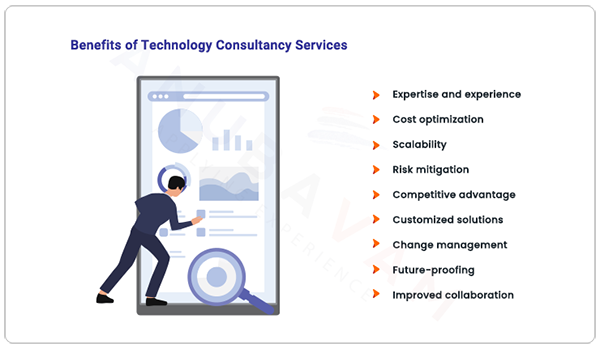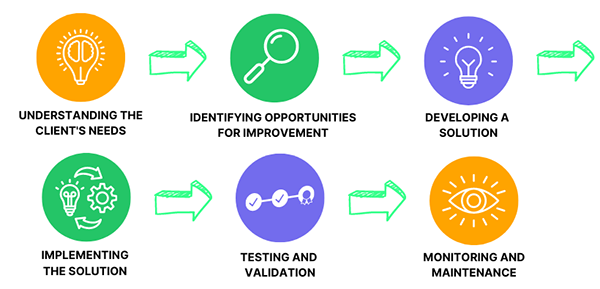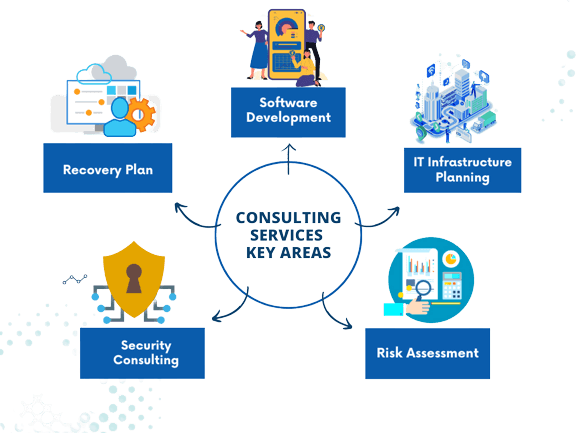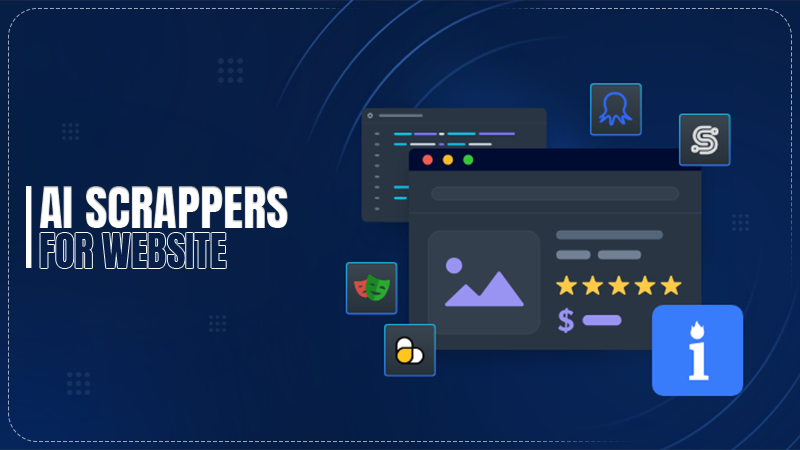Elevating Businesses’ Efficiency Through Technology Consultancy
Technology has been expanding at a rapid pace. And, in this fiercely competitive world where getting ahead of the curve is paramount to be the dominating factor in the market. Technical consultancy plays a huge significance in helping businesses avoid costly downtimes and improves overall scalability.
These consultancies often offer a range of guidance and support to help businesses navigate the complex world of digital transformation. So. in this read, you’ll be exploring the overall value of technology consultancy in elevating business efficiency.
Understanding Technology Consultancy
Technology consultancy is a specialized service that helps organizations leverage technology to achieve their business objectives. It involves providing expert advice, strategic planning, and implementation support across a wide range of technological domains.
Consultants work closely with businesses to understand their unique needs, challenges, and goals, and then develop tailored solutions to drive growth, efficiency, and innovation. The scope is pretty broad, encompassing areas such as:
- Digital strategy development
- IT infrastructure optimization
- Cybersecurity and risk management
- Cloud computing and migration
- Data analytics and business intelligence
- Artificial intelligence and machine learning implementation
- Internet of Things (IoT) integration
- Software development and integration
- Enterprise resource planning (ERP) systems
- Customer relationship management (CRM) solutions
The Value of Technology Consultancy

In an era where technology is integral to business success, the consultancy offers several key benefits:
- Expert insights: Professionals bring deep expertise and broad industry knowledge, helping businesses stay ahead of emerging trends and best practices.
- Objective perspective: As external advisors, consultants can provide an unbiased view of a company’s landscape, identifying blind spots and opportunities that internal teams might miss.
- Cost efficiency: By leveraging the expertise of consultants, businesses can avoid costly mistakes in tech investments and implementations.
- Scalability: Such consultancy allows businesses to access specialized skills and resources on demand, without the need for permanent hires.
- Faster time-to-market: With their experience and proven methodologies, consultants can help accelerate projects and digital initiatives.
- Risk mitigation: Technology consultants can help identify and address potential risks associated with new implementations or digital transformations.
The Technology Consultancy Process

Whereas the specific approach may vary depending on the consultant and the project, the technology consultancy process typically involves several key stages:
- Assessment and discovery: The consultant works with the client to understand their current landscape, business goals, and challenges.
- Strategy development: Based on the assessment, the consultant develops a tailored tech-based strategy aligned with the client’s business objectives.
- Solution design: The consultant designs specific solutions or architectures to address the client’s needs.
- Implementation planning: A detailed plan is created for implementing the proposed solutions, including timelines, resources, and budgets.
- Execution support: The consultant provides guidance and support during the implementation phase, often working alongside the client’s internal teams.
- Evaluation and optimization: Post-implementation, the consultant helps evaluate the outcomes and identify opportunities for further optimization.
Key Areas of Technology Consultancy

The following are some areas where the sector is booming at a huge pace:
- Digital transformation: One of the primary focus areas of technology consultancy is guiding businesses through digital transformation. This involves reimagining business processes, customer experiences, and operational models in light of digital technologies.
- Cloud strategy and migration: As cloud computing continues to revolutionize IT infrastructure, these professionals play a major act in helping businesses develop and implement effective cloud strategies. This includes assessing cloud readiness, choosing the right cloud platforms and services, planning and executing cloud migrations, and optimizing cloud operations for cost and performance.
- Data analytics and AI: In the age of big data, many firms are helping businesses harness the power of data analytics and artificial intelligence. This involves developing data strategies, implementing data governance frameworks, designing and deploying analytics platforms, and leveraging AI and machine learning to derive actionable insights from data.
- Cybersecurity and risk management: With the increasing frequency and sophistication of cyber threats, such advisors are necessary to help businesses strengthen their cybersecurity posture. This includes conducting security assessments, developing comprehensive security strategies, implementing robust security controls, and establishing incident response plans.
- Emerging technologies: Technology consultants help businesses navigate the landscape of emerging technologies such as blockchain, the Internet of Things (IoT), and augmented reality. They assist in identifying relevant use cases, conducting proof-of-concept projects, and planning for the integration of these technologies into existing business processes.
Challenges in Technology Consultancy
Whereas technology consultancy offers significant benefits, it also comes with its own set of challenges:
- Keeping pace with rapid change: The fast-evolving nature of technology means consultants must continuously update their knowledge and skills.
- Aligning technology with business goals: Ensuring that tech recommendations truly align with and support business objectives can be complex.
- Measuring ROI: Demonstrating the tangible return on investment for tech initiatives can be challenging, particularly for long-term strategic projects.
The Future of Technology Consultancy
As technology continues to evolve and shape the business landscape, the role is likely to become even more significant. Several trends are shaping the future of this field:
- Increased focus on business outcomes: The industry is shifting from a technology-first approach to a more business outcome-oriented model.
- Specialization in emerging technologies: As new technologies emerge, we’re likely to see more specialized consultancy services focused on areas like AI ethics, quantum computing, or advanced robotics.
- Integration of technology and management consulting: The line between advisory and traditional management consulting is blurring, with a growing emphasis on holistic digital business transformation.
- Emphasis on sustainability: Technology consultants will play an increasing role in helping businesses leverage innovations to achieve sustainability goals and reduce environmental impact.
- Remote and virtual consulting: The COVID-19 pandemic has accelerated the trend towards remote work, and technology consultancy is likely to see a continued shift towards virtual engagement models.
Conclusion
In a progressive digital world, technology consultancy has become an indispensable resource for businesses seeking to navigate the complexities of technological change. By providing expert guidance, strategic insights, and implementation support, technology consultants empower organizations to harness the full potential of technology, driving innovation, efficiency, and competitive advantage.
As we look to the future, the industry will continue to evolve, adapting to new technologies and business challenges. For businesses seeking to thrive in the digital age, partnering with the right technology consultancy can be a game-changing decision, unlocking new opportunities and paving the way for sustainable growth and success.










